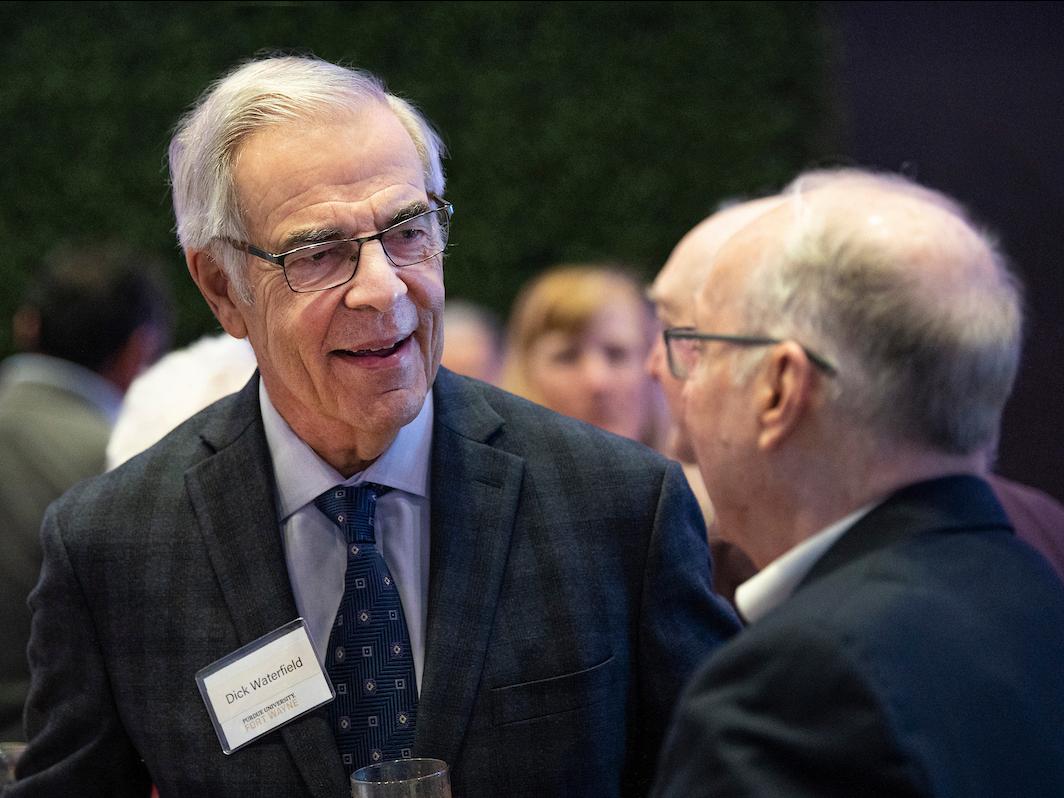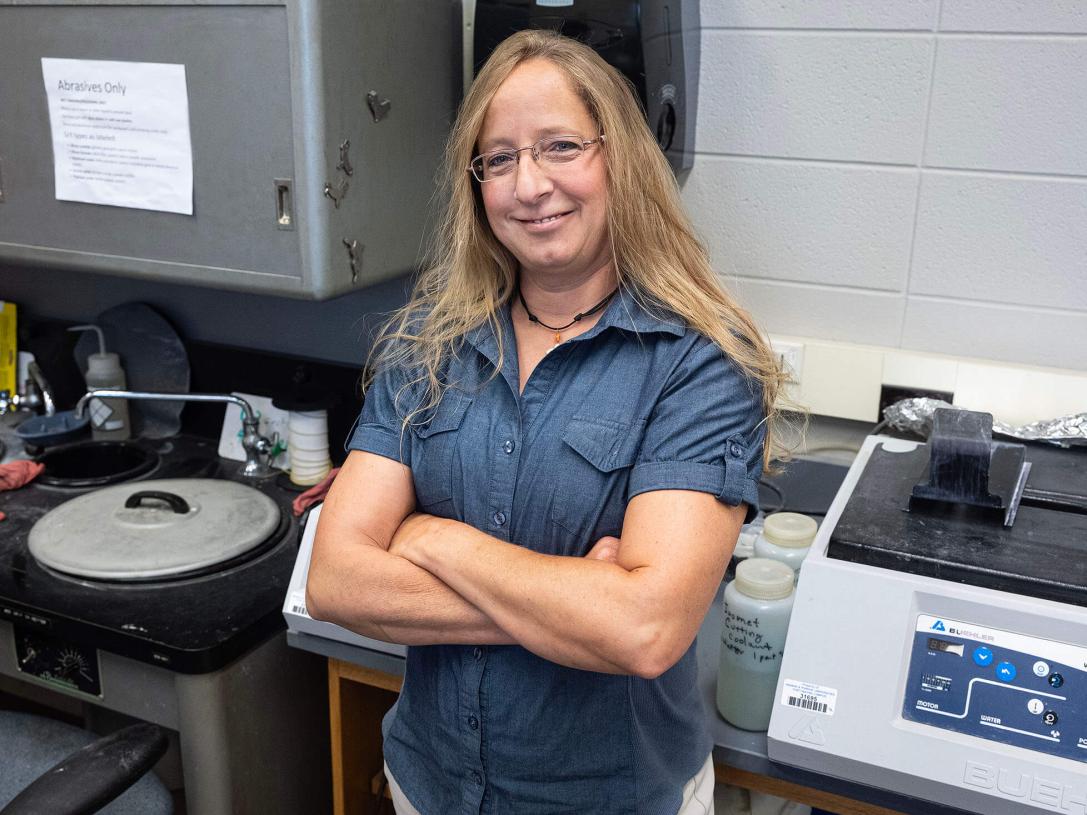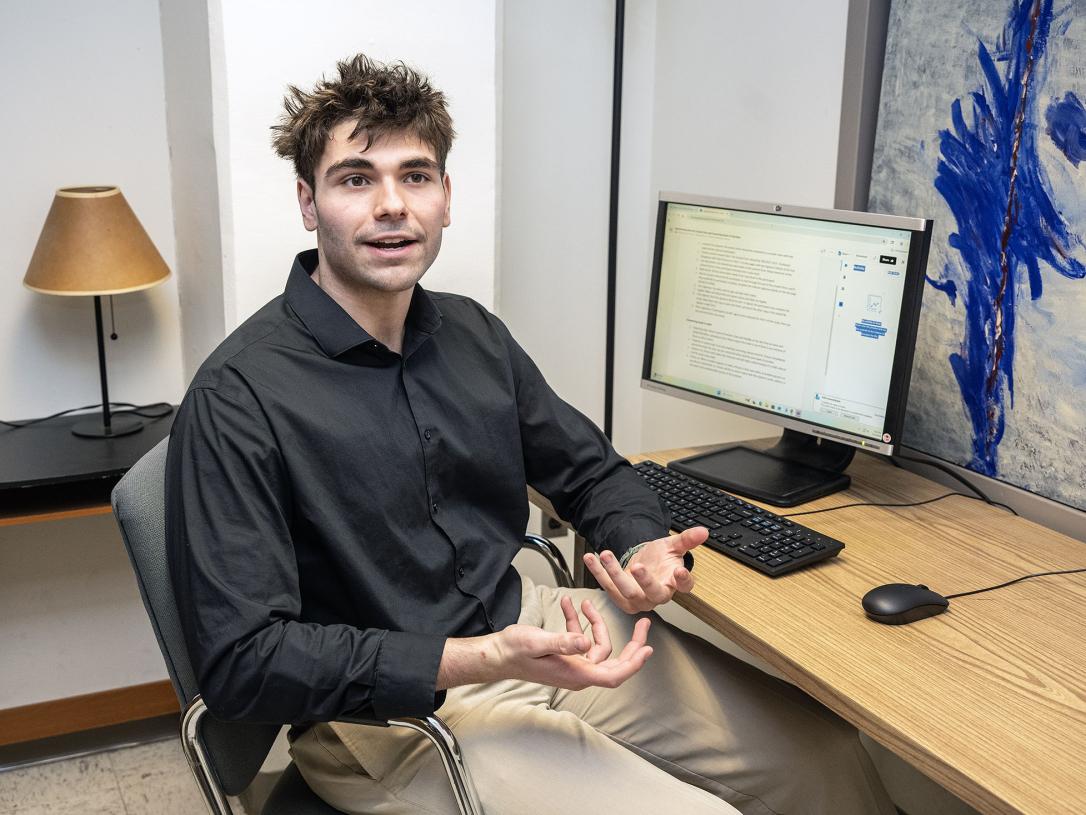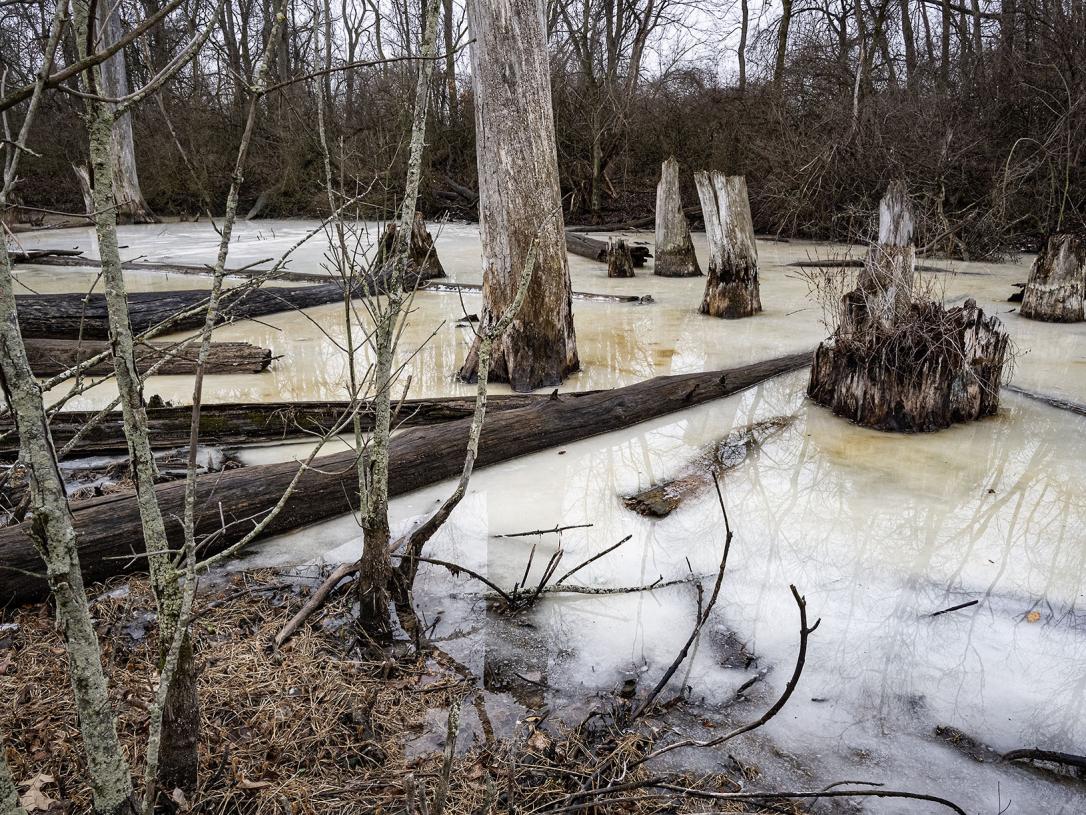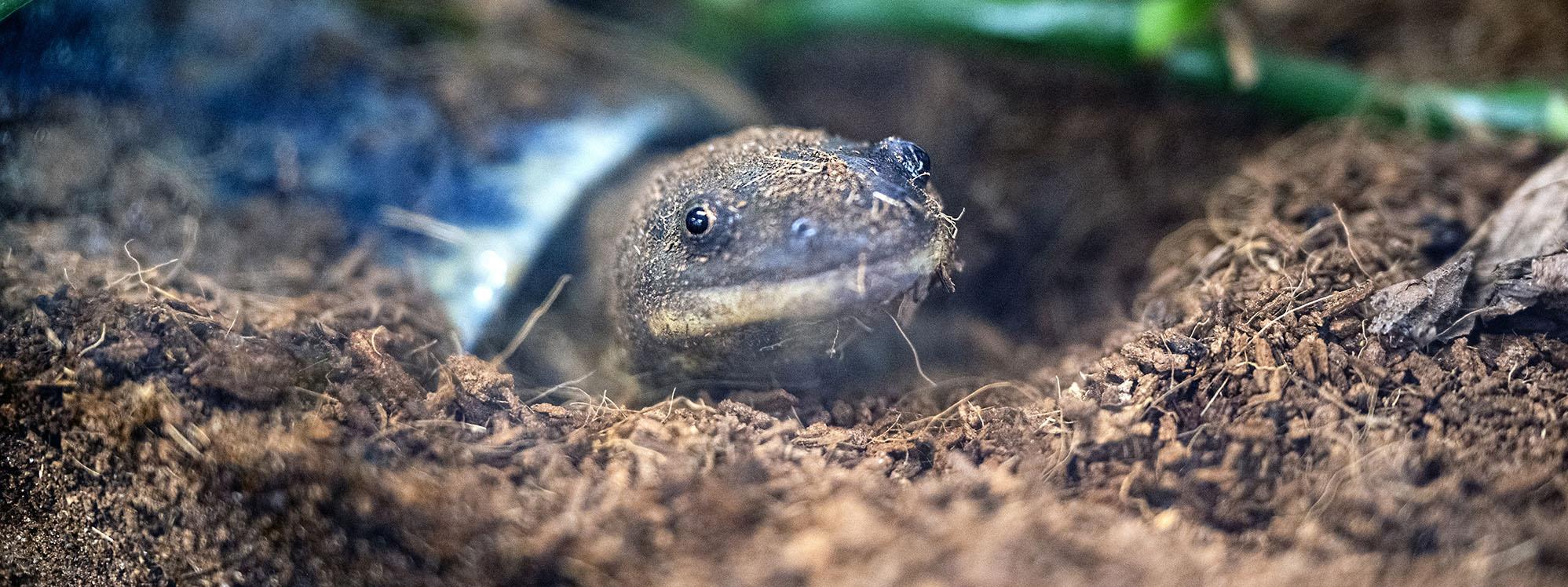
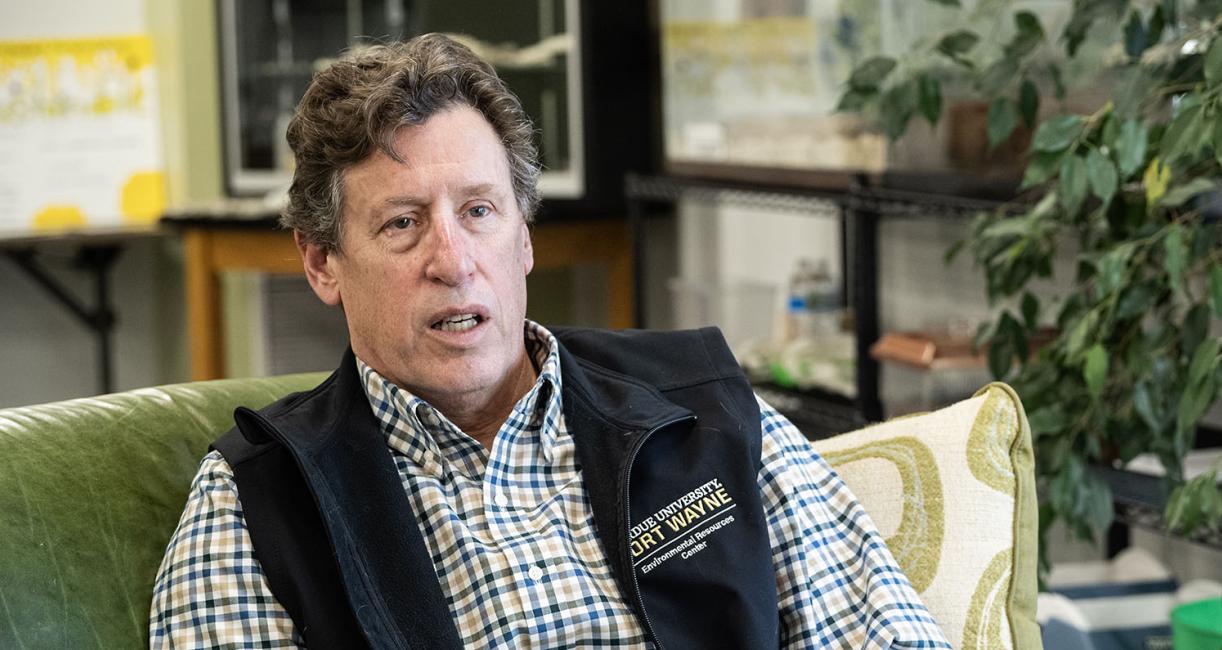
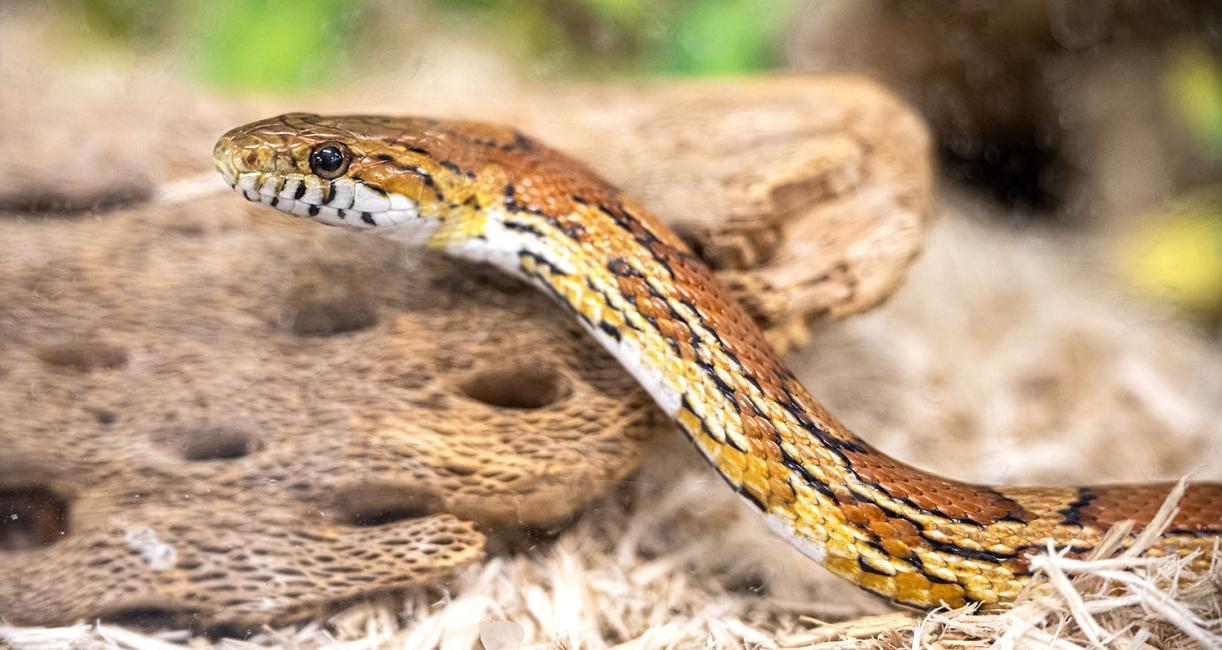
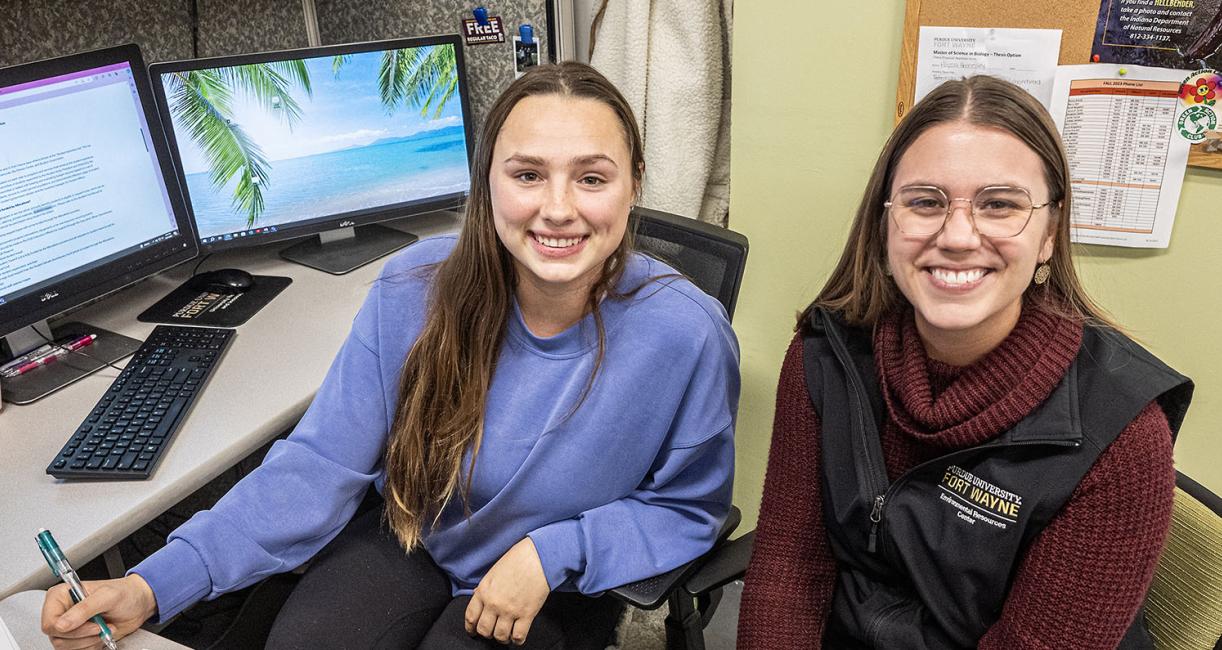
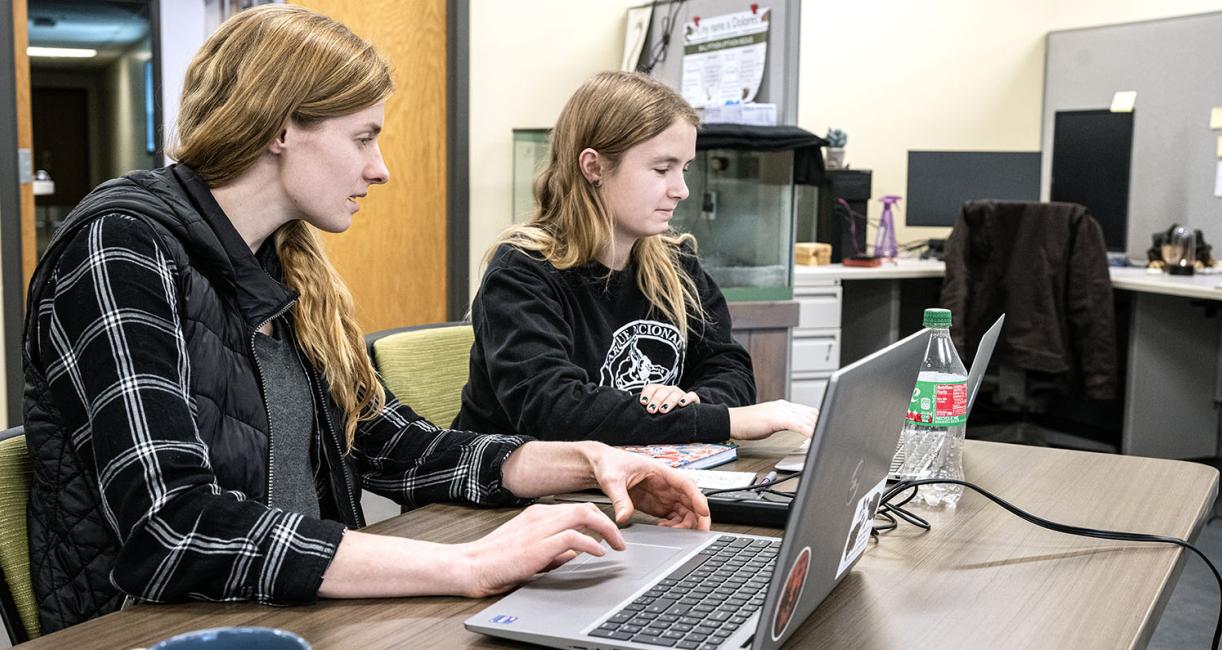

Professor Bruce Kingsbury

Snakes are among the animals that the Environmental Resources Center seeks to protect.

Alyssa Hennessey and Samantha Theisen

Elizabeth Cubberley and Marabai Moseley




Environmental Resources Center’s purpose continues to expand as the world changes
By Blake Sebring
February 6, 2024
Growing up in Southern California, Bruce Kingsbury always loved snakes, which is why he studied biology, eventually earned a doctorate, and in 1992 started teaching at Purdue University Fort Wayne.
At some point during the journey he realized something else about his fascination with reptiles—he also wanted to protect them.
“I actually remember being at a party about when I was finishing my Ph.D. Someone asked me, `Why do you study snakes?’ a question I had been asked many times before,” Kingsbury said. “I had always simply responded, `Because they were cool.’ But I realized then that my historically convenient reply didn’t resonate the same way anymore. I had transitioned from thinking I just wanted to learn about them because they were fascinating, to somebody compelled to protect them. And the way you protect them is you understand what they need and then try to get the powers that be to provide that.”
That’s how the seed for PFW’s Environmental Resources Center in the College of Science, one of the university’s 13 Centers of Excellence, started forming in Kingsbury’s mind. He was interested in studying wildlife ecology, but also in promoting conservation. He believed he could find the funding necessary to fulfill his work on imperiled species while also filling the need for sharing expertise about growing community and societal needs.
With the blessing of the university, the Center for Reptile and Amphibian Conservation and Management was established in 2000. The center’s name changed to ERC in 2012, reflecting the evolution of its mission to include studies on water quality issues, wildlife habitats, sustainability, and greater emphasis on local needs.
It was also in 2012 that Kingsbury realized Fort Wayne was willing to focus more on environmental issues. As an example, he began to work with community leaders in an effort to build up the city’s three rivers, stressing that economic development, recreation, and environmental protection can co-exist. In 2019, the ERC moved from the Science Building to its current location closer to the St. Joseph River, providing more amenities, lab facilities, and meeting space.
Kingsbury regularly speaks publicly as an expert on these topics and often works with local and federal government officials and non-governmental organizations to study the ramifications of projects.
“The idea with the ERC is to be the scientific hub for issues relating to sustainability and the environment,” said Kingsbury. “We are a resource for people, and we also help support entities with shared interests, but limited resources, and incubate new endeavors to help them get started. There are all these different sorts of interactions we can have with different members of the community.”
Kingsbury’s role as director is only part-time as he also teaches two classes per semester, and continues to run a research program focusing on imperiled reptiles. He is supported by graduate research assistant Allyssa Hennessey, B.S. ’22, and Elizabeth Cubberley, M.S. ’22, who works part-time as a program manager. Samantha Theisen, the campus sustainability coordinator, is the only full-time employee, working continuously to expand ERC activities. There are also student workers.
“Thinking and acting with sustainability in mind is certainly increasing in popularity, but oftentimes not fast enough, or in the right ways that have real impact,” Theisen said. “ Admittedly, it’s hard not to get bogged down by the doom and gloom of the state of the world, but the goal isn’t having a handful of people doing it perfectly. It’s having all of us doing it imperfectly. And with the platform that the ERC has, I see steps going in that direction every day, which is a really important and beautiful thing to witness.”
What he loves about the job, Kingsbury said, is that it changes all the time. During any week, he may receive phone calls asking for help from citizens concerned about the wildlife impact of dredging a lake channel, turtle research in Michigan, or rattlesnakes in Tennessee. Most work takes place off-campus, so there is significant travel and adventure.
The center is very involved with outreach and engagement, holding at least 50 interactions or events each calendar year. Kingsbury is also working on a sustainability certificate and minor. Fundraising is a constant need because there is no university funding for ERC research, events, or internships. So is the increased attention required as the environment faces more challenges.
One of those major topics is sustainability, as Kingsbury said he’s heard all kinds of statistics thrown around, including one saying it would take four Earths to sustain the resources humans currently use.
“I think that’s actually wrong because it’s more,” Kingsbury said. “Basically, what we’re doing is getting better and better at borrowing from future generations. There’s absolutely no way we can sustain the way we live.
“How do we live a comfortable life and yet not destroy the planet in the process? We have to try to have a quality of life, but leave something for the next generation.”
